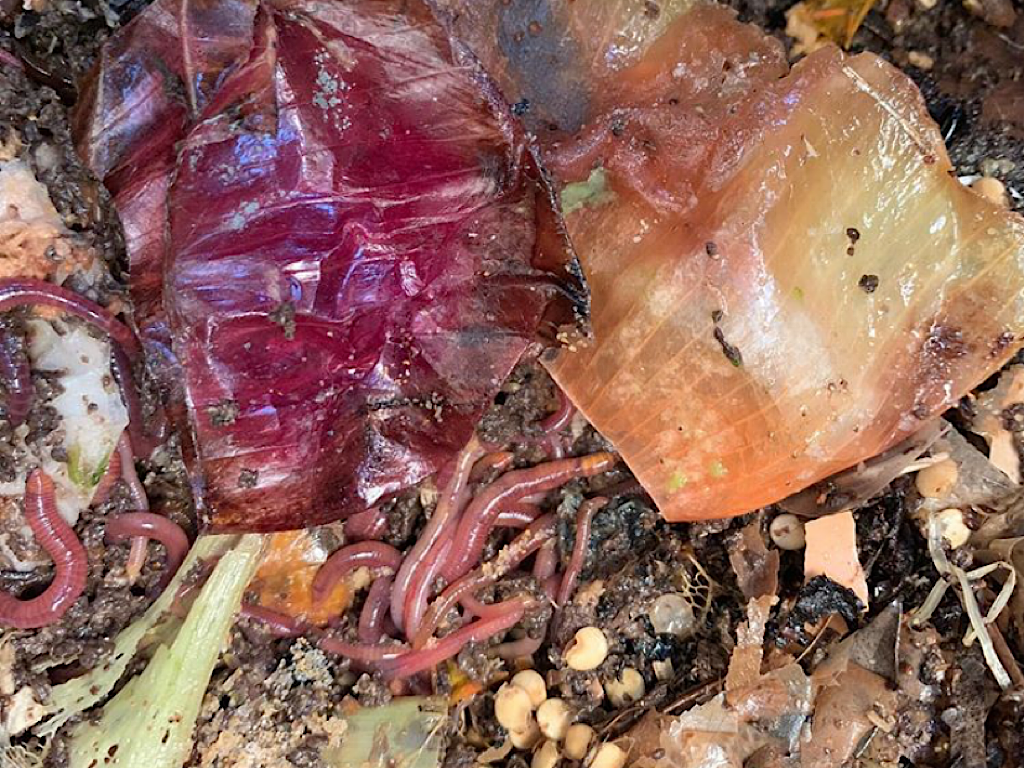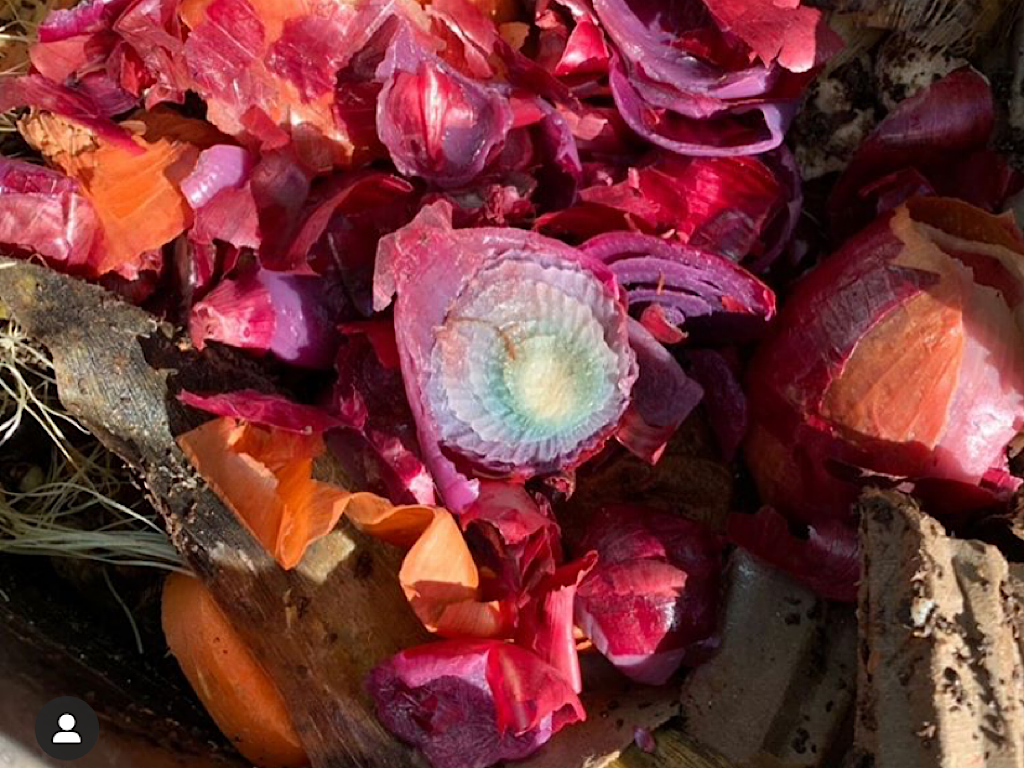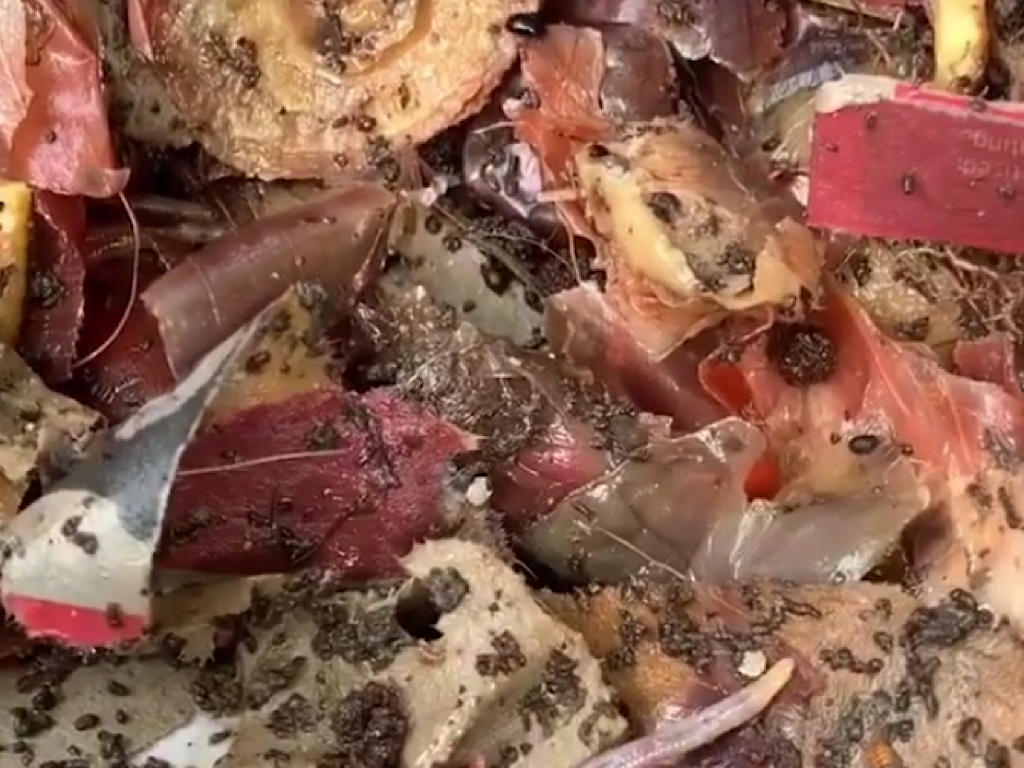If you search, “adding onion to worm farms” on the internet, you may find a variety of sites recommending only small amounts be added, or that it shouldn’t be added at all. I can tell you that over my many years of worm farming, I have added it in along with the other kitchen scraps and observed no ill effects. I decided to put onion to the test and run a few onion focused experiments in my worm farm, in the hope of providing some answers, with evidence to back up the information
The first experiment was all about observing the onion in its rawest form (the way it would most likely be added to an ordinary backyard suburban worm farm). One cut up onion was added in with the other kitchen scraps ready for observation. One week later, I checked the worm farm and observed that the worms had begun to feast on the kitchen scraps around the onion, but the onion was sitting there, relatively unchanged. The worms were certainly not avoiding the area where the onions lay, in fact one worm crawled over the top of the onion skin.
This tells me that if the onion was too acidic, or had the potential to harm or deter worms (as some of the myths state), then surely the worms would not want to be around the onion, or near it. One month after adding the onion to the worm farm, all the other kitchen scraps that were added with it had been devoured. However, some onion (and capsicum seeds) still remained. It was the tough, outer papery skin of the onion that was still intact. No ill effects could be observed and there was still lots of worm activity around the onion pieces that remained in the worm farm. This lead me to ask the following question: Is the onion just not breaking down as fast as the other kitchen scraps? It didn’t seem to deter the worms in any way. This question instigated experiment number two.
The second experiment was all about speeding up the decomposition of the onion in the worm farm. Would the worms be more interested in feasting on the onion if it was easier for them to chomp through? Onion added fresh was too sturdy and took too long to break down (as is the case when you add other whole fruits and vegetables – it always works better if you break up the food for your worm farm into as small a pieces as possible), but the worms didn’t seem to mind being around it. I chopped some up, and halved another one and these were mixed together and put into the freezer, which helps to break down the cell walls in vegetable matter. For extra ooomph, I put them straight from the freezer into the sun as this further breaks cell walls down (which is why frost can be most destructive when the sun hits plants).
I then covered a corner of my worm farm with the onion and did not mix them with the other kitchen scraps. I wanted to observe if the worms would avoid that area and also look for any ill effects in the onion part of the worm farm. The frozen and thawed onion were so much softer and were showing signs of decomposing after just one week of being in the worm farm. Lots of worm activity was observed both in and around the onion. I will say that lifting the lid of the worm farm, did give me a strong onion smell, so freezing it did not affect the fumes. I was pleased to observe that my worm population was not trying to desert the farm, or avoid the area blanketed with onion.
Kitchen scraps (including onion) are rich in nitrogen, so to keep your worm farm in good balance, it’s always important to add some carbon rich material as well. I decided it was time to add some ripped up corrugated cardboard to the corner of the worm farm that was blanketed with frozen and thawed onion.
I placed the corrugated cardboard on top of the onion . Within three days of doing this, I noticed a big increase in the amount of worm activity in this area of the worm farm. Perhaps the cardboard helped absorb some of the onion juices for a tastier balance? Perhaps they just needed the extra moisture that a cardboard blanket gives? It took just three weeks for all of the onion and corrugated cardboard to completely disappear from the worm farm. Absolutely no ill effects at all could be observed in the worm farm or the overall health of the worms. In fact, my worm population was thriving. I’m happy to say this onion myth is busted!
For lots of information on home growing vegies, worm farming and lots more, check out the book “Grow Your Own”….buy it here>>>>




